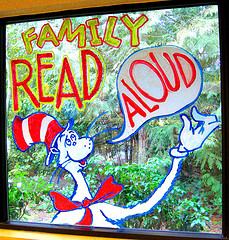I don’t know how many times I’ve read the book of Job, yet I know that this is a book often in my mind.
This poetic account of a righteous and rich man suddenly deprived of his material blessing always raises life’s big questions. Who is truly blessed? What on earth is God doing? Who is right, who is evil? What is empathy? How helpful – and how dangerous – is theological knowledge?
 Recently I have been reading Job in a new way. Around the dinner table, we have been reading Job as a family – a Bible study for those between 5 and 45 (and visitors who share a meal with us). We don’t skip any chapters – every word is read out loud.
Recently I have been reading Job in a new way. Around the dinner table, we have been reading Job as a family – a Bible study for those between 5 and 45 (and visitors who share a meal with us). We don’t skip any chapters – every word is read out loud.
This reading out loud is amazing. I find it so much easier to spot unfolding ideas as they develop over many chapters. Previously, the speeches of Eliphaz, Bildad and Zophar were all a blur to me. After our reading, it’s so much easier to see how their antagonism to Job grows in intensity.
Again and again we are all saying, ‘That’s just like what we read a few chapters ago.’ And we can spot how Job and his ‘friends’ argue against each other: often using similar words and phrases but in violent disagreement. We’re picking up subtlety, irony and sarcasm.
It’s definitely true that the kids under 10 contribute to our discussions – they make valuable observations and help us all. I’m convinced that a major reason for this is reading the poetry out loud.
So, this post is in praise of reading the Bible out loud. Read passages together. Read poetry. Read long passages, even multiple chapters. Don’t make apologies, but start with the assumption that all who hear will hear something true. The expectation we start with directly shapes the result we finish with.
